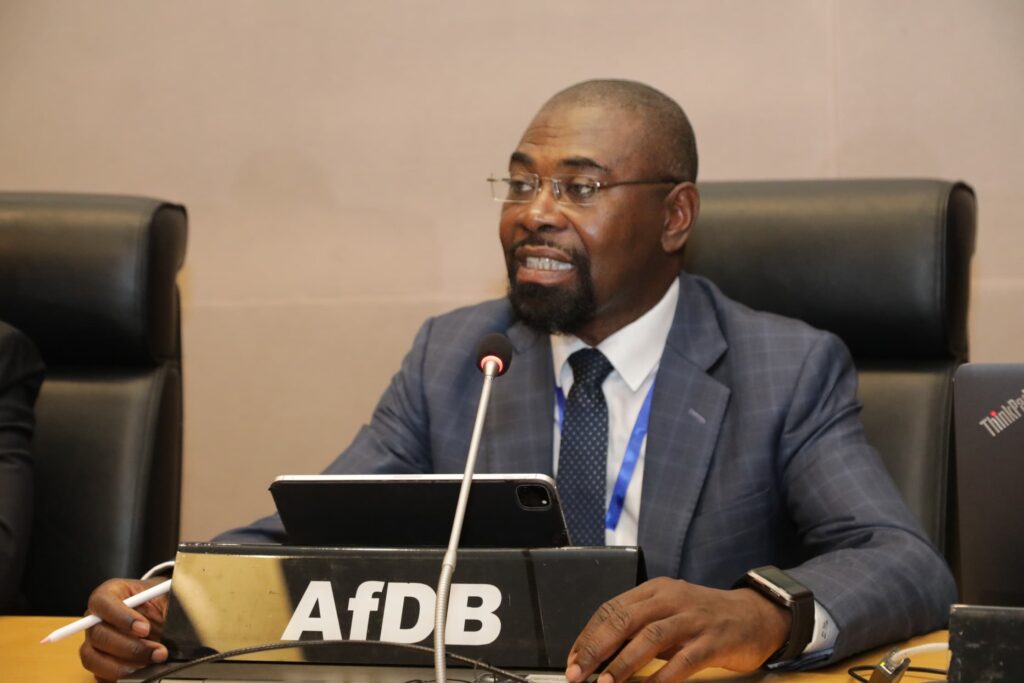
30 June 2025, Addis Ababa Ethiopia, By Dr Baboloki Semele: Africa’s vision for a unified and sustainable electricity market took center stage at the AFSEM High-Level Technical Meeting held from June 30 to July 1 under the theme “Advancing AfSEM and CMP Implementation; Strengthening Regional Power Markets for a Unified and Sustainable African Electricity Future.” Bringing together policymakers, regulators, financiers, and development partners, the meeting focused on the advancement of the African Single Electricity Market (AfSEM) and its accompanying Continental Master Plan (CMP)—key pillars of the African Union’s Agenda 2063.
During his remarks at the opening session, Dr Wale Shonibare, Director of Energy Financial Solutions, Policy and Regulation at the African Development Bank (AfDB), delivered a call to action. In his keynote address, Shonibare underscored the urgency of bridging Africa’s electricity access gap, noting that over 600 million people remain without power while more than 1 billion lack access to clean cooking energy—an energy crisis he called “a hidden tax on Africa’s productivity and competitiveness.”
“Africa’s electricity market remains fragmented,” he told delegates. “AfSEM offers a transformative blueprint to integrate our energy systems, enabling coordinated use of our vast resources and creating a competitive, sustainable, and inclusive power market.”
The African Development Bank, he emphasized, remains a firm backer of this goal, aligning its flagship initiatives—such as the New Deal on Energy for Africa and the recently launched Mission 300—to support AfSEM’s implementation. Mission 300, co-launched with the World Bank, aims to deliver 300 million new electricity connections by 2030. Its endorsement by 48 Heads of State and the African Union Assembly through the Dar es Salaam Declaration signals strong political momentum.
Central to the Bank’s approach is the African Energy Sector Technical Assistance Program (AESTAP), a flagship support mechanism under Mission 300. The fourth pillar of AESTAP directly targets regional power market development by enhancing institutional capacity and harmonizing regulatory frameworks across borders.
Shonibare’s address drilled down into the core ingredients necessary for turning AfSEM from vision to reality. He highlighted the need for financially viable utilities, describing them as the backbone of national electricity systems. With fewer than one in four African utilities currently able to recover costs, he called for a transformation through governance reform, digital upgrades, and capacity building. He stressed regional interconnection as non-negotiable.
“Africa’s power potential is vast but geographically dispersed,” Shonibare noted.
Cross-border power trade, he argued, can unlock cheaper, cleaner energy for all. However, existing regulatory fragmentation, infrastructure bottlenecks, and institutional capacity gaps continue to hamper progress. To address this, the AfDB is currently supporting over 10,000 km of new transmission lines, including major interconnectors in West and Southern Africa. Along the deliberation, he turned to the critical role of the private sector because while private investment has made inroads in energy generation, transmission and distribution remain largely government-controlled. This imbalance is unsustainable, Shonibare warned, noting that less than 1% of transmission financing in Sub-Saharan Africa over the past decade came from private sources. He advocated for enabling reforms such as strategic unbundling, legal certainty, and de-risking mechanisms to attract private capital into underfunded segments of the energy value chain.
To that end, the Bank is leveraging its arsenal of innovative de-risking instruments—including Partial Risk and Credit Guarantees and the Sustainable Energy Fund for Africa (SEFA) to mitigate the political, currency, and off-take risks that often deter commercial financiers.
“We must address perceived risks comprehensively,” Shonibare said, “or the investments required for generation, transmission, and distribution will remain elusive.”
Throughout his remarks, Shonibare emphasized partnership as key to success. “No single institution can do this alone,” he stated. “We must deepen collaboration among multilateral banks, bilateral donors, and private capital providers to co-finance, co-develop, and de-risk regional energy projects.”
The meeting is expected to result in renewed commitments from stakeholders to fast-track regulatory alignment, scale regional infrastructure, and bolster private sector engagement in Africa’s energy transformation. As discussions continue, optimism remains high that AfSEM will accelerate Africa’s progress toward industrialization, energy security, and climate resilience.
“A unified African electricity market is not a distant dream—it is an achievable reality,” Shonibare concluded. “Together, we can light up and power Africa for generations to come.”